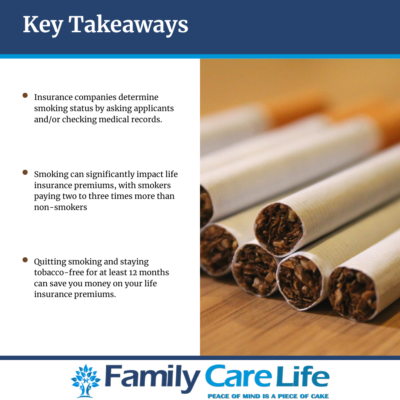Smoking is a habit that affects not only a person’s health but also their finances, especially when it comes to life insurance. In this article, we will discuss how insurance companies determine smoking status and how it affects life insurance premiums.
What qualifies as smoking?
To understand how smoking impacts life insurance, we must first define what qualifies as smoking for insurance companies. While regular smokers are easily identified, occasional smokers or those who use e-cigarettes and vaping products may not be so clear cut. Typically, insurance companies define smokers as anyone who has used any tobacco products within the past 12 months. This includes cigarettes, e-cigarettes, cigars, pipes, chewing tobacco, snuff, and even nicotine replacement products like gum or patches.
Determining Smoking Status
When applying for life insurance, applicants are asked if they use any tobacco products. If the answer is yes, they are considered smokers. Insurance companies may also require a medical exam, which could include a nicotine test to determine if an applicant has used tobacco products within the past 12 months. (The companies we work with to provide final expense insurance do not require a medical exam.) They may also check any available medical records. Lying about tobacco use could result in a denied claim, so it’s important to be truthful about smoking habits.
Impact on Life Insurance Premiums
Smoking can have a significant impact on life insurance premiums. When it comes to life insurance, smokers usually pay more compared to non-smokers. That’s because smoking increases the likelihood of health problems like cancer, heart disease, and stroke, which makes them riskier to insure. On average, smokers pay two to three times more for life insurance than non-smokers.
Quitting Smoking and Its Benefits
If you’re a smoker, quitting can not only improve your health but also your finances. Life insurance rates for non-smokers are much lower than those for smokers. If you quit smoking and stay tobacco-free for at least 12 months, you could save money on your policy. It’s important to note that insurance companies may require proof of tobacco-free status before adjusting your premium.



Comments